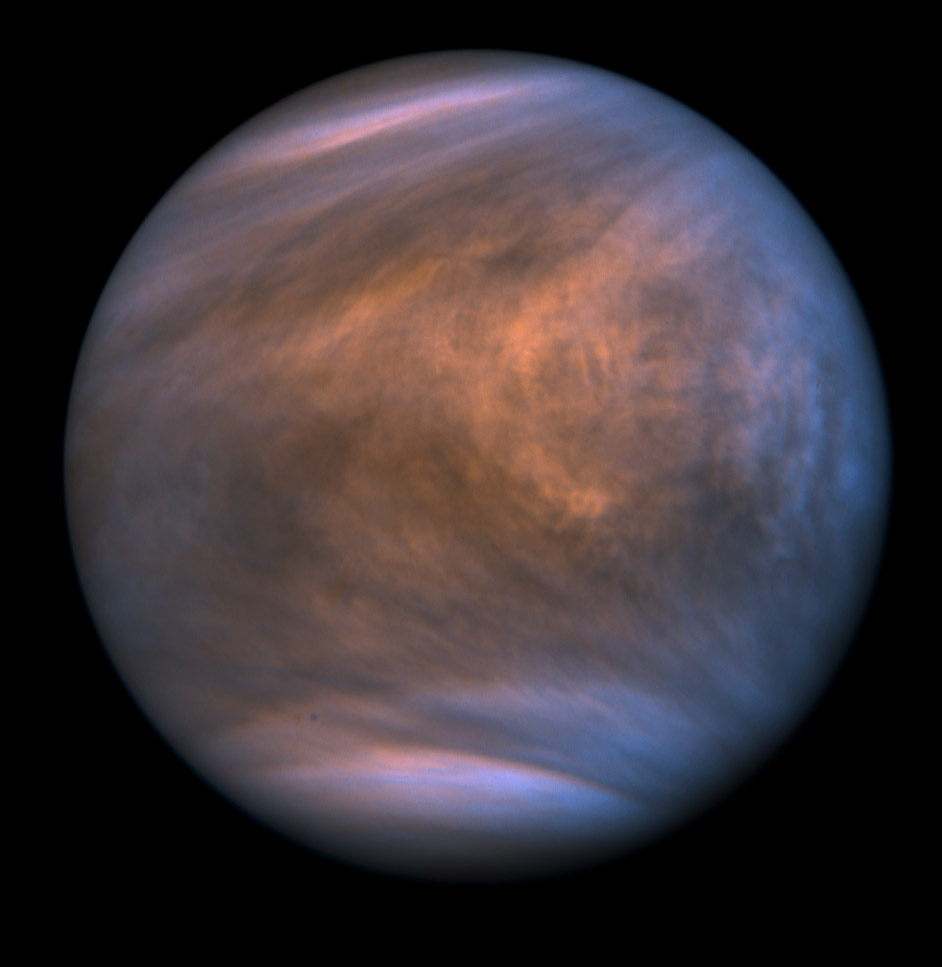Today& #39;s Big Space Story: scientists detect an unusual gas in the atmosphere of Venus that *might* indicate life, pending more study.
I& #39;m especially excited by the potential parallels to recent research on the surprising prevalence & importance of microbial life in Earth& #39;s clouds
I& #39;m especially excited by the potential parallels to recent research on the surprising prevalence & importance of microbial life in Earth& #39;s clouds
The gas in question is phosphine. On giant gas planets like Jupiter & Saturn, intense heat & pressure form phosphine abiotically. But on smaller rocky planets like Earth there& #39;s only one thing currently known to produce phosphine: microorganisms. Could the same be true of Venus?
Several decades ago, the idea that microbes might exist in Earth& #39;s atmosphere and deep interior—that they might live, feed, and multiply in such extreme conditions and so far from the planet& #39;s surface—was highly controversial, even laughable to some experts.
Today, it& #39;s widely accepted that Earth microbes live just about everywhere there is water and energy, even trace amounts, even at temperatures, depths, heights, pressures, and acidities once though to be universally lethal.
On Earth, the wind perpetually whips microbes, algae, and fungi between land, sea, and sky. Colonies of microbes can remain airborne for weeks at a time, not only surviving, but feeding and possibly reproducing among the clouds https://www.nytimes.com/2015/02/15/magazine/its-buggy-out-there.html">https://www.nytimes.com/2015/02/1...
Microbes in Earth& #39;s atmosphere are not only passive sojourners, however. Many of them alter the weather by seeding clouds, increasing rain and snow, and ultimately modifying global climate. Some have likely been part of meteorological & climatic processes for *billions* of years
As @DrFunkySpoon explains, Venus likely had habitable oceans for billions of yrs. Perhaps it evolved microbes that circulated btwn sea & sky. Maybe those microbes adapted to permanent residence in Venus& #39;s levitating oceans as the ones beneath them dried up https://twitter.com/DrFunkySpoon/status/1305520472151527424">https://twitter.com/DrFunkySp...
Of course, this is largely speculation. There& #39;s still so much missing information. It& #39;s certainly possible that Venus generates phosphine through non-living processes that have not yet been identified. But it& #39;s currently unclear what those pathways would be.
Still, the detection of unusual chemical signatures that cannot be easily explained by non-living physics remains our best chance of finding life on another planet, so this is an exciting development. For aliens studying Earth from afar, this is exactly what would stand out.
It& #39;s all part of the larger idea that life is a planetary-level process, that we can speak scientifically not only of life evolving *on* a planet, but also of planets that are themselves alive https://www.nytimes.com/2019/04/20/opinion/sunday/amazon-earth-rain-forest-environment.html">https://www.nytimes.com/2019/04/2...
For in-depth analysis of the Venus findings, please look to my colleagues who routinely cover space, incl @astrolisa @nadiamdrake @shannonmstirone @marinakoren @ClaraMoskowitz @ScolesSarah @AstroKatie et al.
I just wanted to add some life science/Earth system science perspective
I just wanted to add some life science/Earth system science perspective

 Read on Twitter
Read on Twitter




